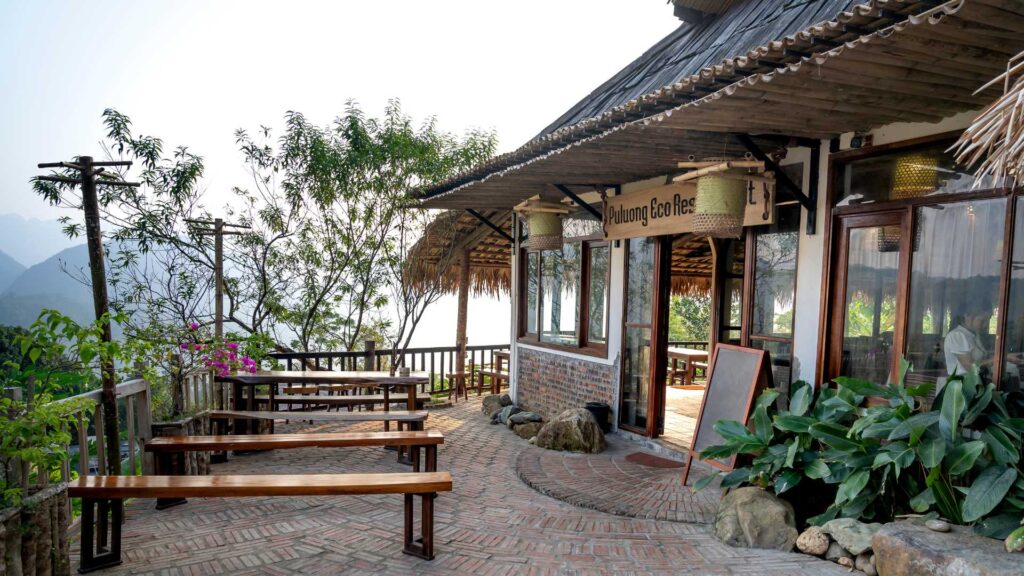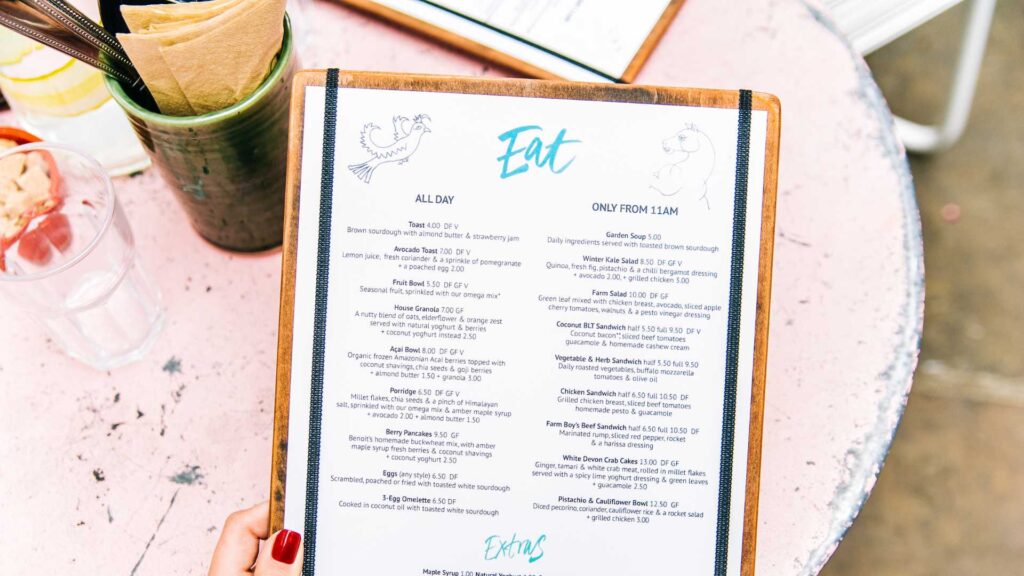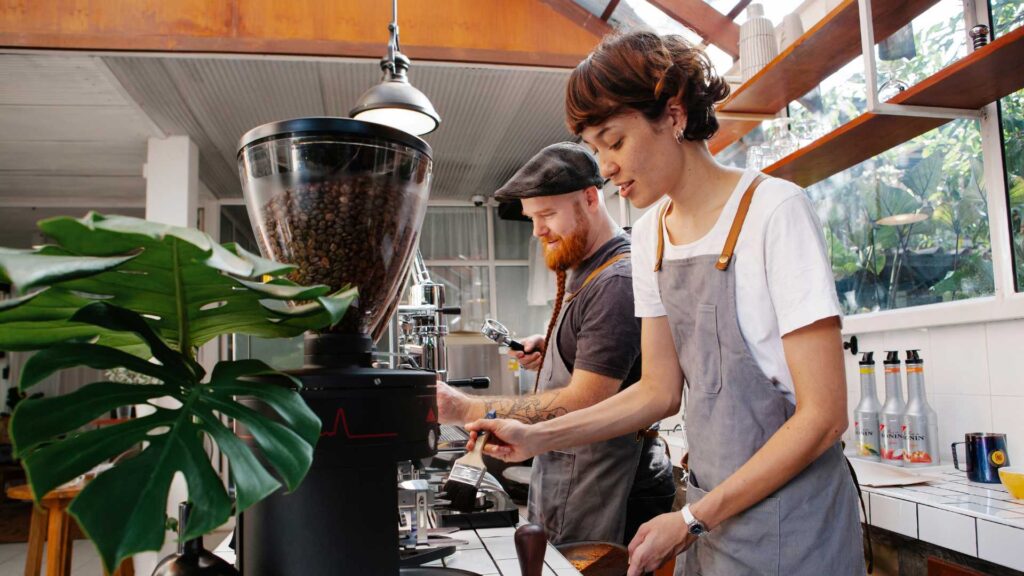How to Start a Cafe in India – a complete guide

Are you passionate about learning how to start a cafe in India? If so, this blog post is for you.
Starting a cafe in India can be a very exciting journey, but no doubt it will also be a difficult task for those who are new to this.
There are various steps involved in this from finding the location to designing the cafe and ultimately making the perfect menu. This is only the beginning of what could be called a series of difficult tasks.
But don’t worry. We have got you covered in this blog, we are going to talk all about how to start a successful business, that is a cafe in India in 2024, and what the common mistakes one should avoid.
In this blog, you will get the ultimate checklist you need to start your cafe!
Let’s dive in!
The Cafe Business Environment of India
The coffee business has gone through dramatic changes in the Indian market in the last decade and India is fast becoming a cafe nation. This evolution has been mainly propelled by demographics, where young people, mobility, and an emerging middle class are willing to spend their income.
Coffee stakeholders and coffee houses in India have been targeting not only coffee consumers. Despite that they are still a major part of its customers, the cafes have also become popular among students, businessmen, couples, and families looking for a comfortable and fashionable place to spend time.
In the same regard, and due to the modern trends of remote working, cafes have been transformed into ‘home offices’ of freelancers and business owners.
The potential in the cafe business in India is always massive, but many things should be considered for the business to be profitable. Organization, quality service, and appropriate atmosphere are among the major factors that create loyalty among the clients and enable the regular flow of customers.
Furthermore, the integration of sustainability into a cafe’s environment, and the provision of specialty products including coffee-making classes or live performances distinguishes a cafe and improves its revenues.
Steps for how to start a cafe in India
1. Market Research & Goals

Define your vision: Start with what you want your cafe to be. What will be your ‘point of difference’ from the competition that will make patrons prefer your café over others? Will it be a themed café, a specialty coffee house, or a restaurant with various types of offers? Consider exactly for whom the park will be necessary—whether it will be financed by the student’s pocket money, working adults, families, or,” Hello world “tourists.
Research the Market: Get to grips with the present trends in the marketplace. Go to other cafes in your locale see their strong points and their faults and find opportunities for differentiation. To try and get an idea of what the potential customers may desire, one needs to use such tools as online surveys and focus groups.
2. Create a Business Plan

The main factor is the presence of a good business plan. It should include:
- Executive Summary: An overview of the concept of your enterprise, and of the objectives you seek to achieve.
- Business Description: Information about the type of cafe that will be opened, its location, and the issues that the cafe will address.
- Market Analysis: Knowledge of the target audience and rivals.
- Organization and Management: Your organizational formation or type of business and the management team.
- Menu and Services: A sketch of your menu and such other services as catering services or delivery services in case you will be operating online.
- Marketing Strategy: Strategies on how to brand, how to promote, and how to get customers.
- Financial Projections: Business plans, expense projections, and finance needs.
Determine the total capital required for startup costs, including:
- Lease/Rent: Value of purchasing as well as carrying out regular expenses on the property.
- Renovation and Décor: Lighting, furniture, fixtures and equipment.
- Equipment: Coffee makers, ovens, coolers, and other requirements needed for a commercial kitchen.
- Licenses and Permits: We also charge fees in respect of legal documentation.
- Initial Inventory: The so-called three ingredients, namely the product packaging and materials for usage.
- Marketing and Promotion: As an indication of financial commitment, provide for advertising and branding.
3. Legal and Regulatory Requirements

You will have to decide whether you want to operate under a sole trader partnership limited partnership LLP or a private limited company. To start with, you need to formally name your business register the name, and apply for a Certificate of Incorporation where the name requires it.
The license and permits required are:
- FSSAI License: Food safety and hygiene are possible with the help of this essential nutrition food item.
- Trade License: These licenses are released with permission from local municipal authorities.
- GST Registration: Needed for tax purposes mostly.
- Liquor License: If you intend to be serving alcohol.
- Health and Safety Certifications: This guarantees that he or she complies with the set hygiene standards.
4. Location and Design

It is thus needed to ensure that it has selected a strategic site to cultivate its business.
The degree of success of your cafe is defined to a great extent by its location. Choose locations with a lot of moving feet traffic; the better locations would be near workplaces, colleges, or commercial areas. Make sure the space is fairly conspicuous as it should be conveniently located.
Design Your Cafe: Choose the right location and make your cafe comfortable and homey with decors that complement your café’s concept. Think about the kind of comfort provided through arrangements of chairs, tables, and other lighting and ornamentation.
A good layout of a café goes a long way in attracting clients and at the same time improving their experience on their premises. The environment should be cozy therefore, use quality and comfortable chairs and tables, adequate lighting, and beautiful colors.
5. Menu Planning and Suppliers

Promote a Unique Identity: Choose a menu that can correspond to your cafe’s theme. Provide several choices where prices are suitable for coffee, tea, cakes, various sorts of snacks, and hot meals.
cafe should emphasize the quality of the products that they are selling together with the uniqueness of preparation styles and recipes. There should be introduced some food preferences, for instance, vegan, gluten-free, and organic meals.
Source Reliable Suppliers: Sourcing of coffee beans, tea leaves, baking needs, and any raw materials need to be sourced from reliable sources. It is the purpose of ingredients to ensure the quality and standard of your meals are not compromised. To realize high quality and on-time delivery to foster a good reputation.
6. Hiring and Training Staff

Recruit Skilled Staff: Use only experienced and enthusiastic employees for the positions that will interact with the customers. Therefore target people with experience such as baristas, chefs, servers, and managers. With the right team, it will have the impact of improving the organizational environment and thus customer satisfaction.
Provide Comprehensive Training: Teach your employees in one or many regions, such as customer relations, meal preparation, and sanitation. As found out, training and motivation enhance the overall performance of staff and reduce staff turnover.
Suggested Read: How to start a hotel business in India?
7. Marketing and Promotion

Build Your Brand: A good ID has an attractive Logo, a catchy company name, and well well-designed emblem alongside an effective slogan. It is crucial to ensure that your branding portrays the nature of your cafe and will be loved by the group of users you are going to have.
Clarity in marketing collateral is not the only thing important here, but repeated exposure to logos and similar-looking materials also becomes significant.
Use Digital Marketing: Use the internet effectively to advertise your cafe. Design and develop an easy-to-navigate business Website and remain active on social networks. Social media marketing, SEO, and online advertising should be employed to help reach out to as many people as possible.
Host Launch Events: Do official opening exercises so that you can attract a wider market into your business, especially for the first few weeks. Use special offers, free samples, and live music for the event to be memorable. Extend invitations to local personalities such as bloggers and members of the media to the event.
8. Operations and Management

Implement Efficient Systems: Established systematic ways for handling stock, sales orders, and customers. Lease high-tech POS systems and inventory tracking software to increase efficiency within the business.
Emphasize Customer Outcomes: They should set a high standard of providing ultimate services, cleanliness, and quick response to the customers’ complaints. A positive customer experience will ensure people return to other businesses and refer others to the business as well.
9. Financial Management

Monitor Financial Performance: They include revenue, expenses, and profitability and you should check them often through your financial statements. It will be advisable to use accounting software when undertaking financial management to enhance bookkeeping.
Adjust and Adapt: Always be geared up to change your business plans depending on the financial returns that you get and the changing market circumstances. Always be in a position to evaluate the various customers’ responses and the sales records.
Suggested Read: How to Start a School in India?
10. Legal Compliance and Growth

Ensure Compliance: New legal and regulatory requirements affecting food safety, employment, and business operations should be followed by the Company. To ensure that the company does not fall foul of the law, regular auditing or inspection of the premises may be conducted.
Plan for Growth: When your cafe is on the map, think about growth strategies. This might mean the expansion of outlets, expansion on the type of foods offered, or taking up franchising.
Conclusion
No wonder starting a cafe in India requires a lot of hard work, planning, and dedication.
But by being consistent and following the guidelines given in this blog you can start your successful cafe and fulfill your dreams.
I hope you found the content of this blog informative and helpful. Follow these steps for opening a successful cafe.
Thank you.
Open the cafe of your dreams now!
Also, Our last blog is about how to start a cloud kitchen. You can read that blog also!
Frequently Asked Questions (FAQs)
Q1) Do I need special requirements or experience to start a cafe in India?
No special education is necessary, but it can be useful to have had experience providing food and beverages in a restaurant or a canteen. They help since they give you a heads-up on the operations of a cafe and prepare you to handle whatever comes with the business.
Q2) How much money do I need to open a cafe?
One aspect of starting a cafe is that the costs of doing so can be quite high and even can greatly differ depending upon the place, size, idea, and design of the cafe. One must prepare a comprehensive business plan to come up with closer approximations of your cost.
Q3) The licenses and permits that are needed are?
If one is planning to start a cafe in India, he requires licenses and permits including a food safety license, health permit, fire safety clearance, GST registration, and local municipal licenses.
Q4) Where should I open the cafe?
Location selection is the key to a successful cafe business. Choose locations with heavy traffic, good access, and a demographic demographic that will suit your idea. It could be advisable to seek the services of a real estate agent or survey the market to find suitable locations.
Q5) I want to run a cafe and I have a concern about how I shall be able to get the ingredients for my foods.
Especially when it comes to food, the focus should be made on cooperating with local suppliers to obtain fresh ingredients of top quality. Ensure that you source the products from trusted suppliers to avoid being supplied with low-quality products for your menu.
Q6) How do I achieve the differentiation of the cafés’ menu?
Selecting a menu that is out of the ordinary requires one to consider the clients and adapt as much as one is willing and wants. Use creativity in the preparation of foods, try to have many options availed, and make use of some special occasions that may warrant a new type of meal.
